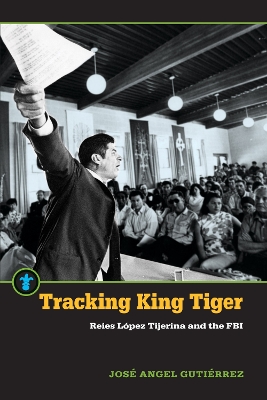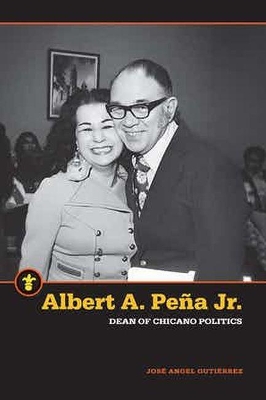Latinos in the United States
2 total works
Reies Lopez Tijerina, one of the Four Horsemen of the Chicano Movement, led the land grant struggle by Hispanos in the 1960s to recover the lands granted to their ancestors by Spain and Mexico and then guaranteed by the Treaty of Guadalupe Hidalgo. In his struggle, Tijerina became the target of local and state law enforcement officials in New Mexico and the FBI nationwide.
Jose Angel Gutierrez meticulously examines thousands of pages of FBI documents, interview transcripts, newspaper reports, and other written accounts on Tijerina and the Alianza Federal de Pueblos Libres, the organization of land grant claimants led by Tijerina in New Mexico.
The primary source materials that document the U.S. government's attempts to destroy Tijerina, his family, and his followers complement the secondary literature on Tijerina and his efforts as the premier leader of the land grant recovery movement. Threaded through the volume are glimpses into the special personal relationship between Tijerina and the author.
Jose Angel Gutierrez meticulously examines thousands of pages of FBI documents, interview transcripts, newspaper reports, and other written accounts on Tijerina and the Alianza Federal de Pueblos Libres, the organization of land grant claimants led by Tijerina in New Mexico.
The primary source materials that document the U.S. government's attempts to destroy Tijerina, his family, and his followers complement the secondary literature on Tijerina and his efforts as the premier leader of the land grant recovery movement. Threaded through the volume are glimpses into the special personal relationship between Tijerina and the author.
The political and social impact that Albert A. Peña Jr. had on the lives of Mexican Americans, and later Chicanos, is by all counts immeasurable. However, in part because Chicano biography has traditionally been a neglected research area among academics generally and Chicano Studies scholars specifically, his life’s work has not featured prominently in any biographical work to date, making this volume the first of its kind.
It provides a richly detailed documentation of Peña’s life and career, from blue collar worker to judge and essay writer, spanning nearly ninety years. Readers will find that at the heart of his story is a focus on grassroots organizing and politics, sharing leadership, and a commitment to social justice.
It provides a richly detailed documentation of Peña’s life and career, from blue collar worker to judge and essay writer, spanning nearly ninety years. Readers will find that at the heart of his story is a focus on grassroots organizing and politics, sharing leadership, and a commitment to social justice.

